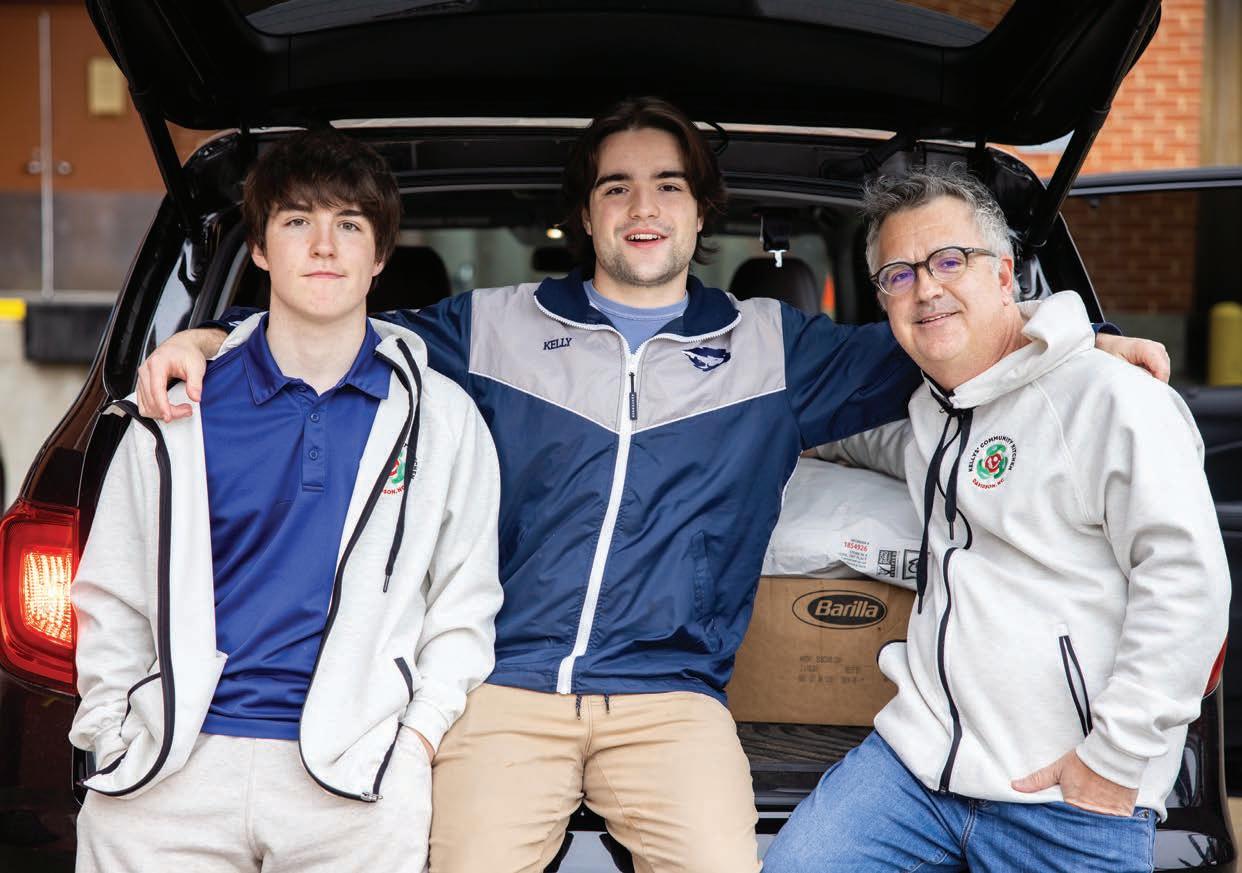
2 minute read
Local Flavor
Aiden (center) and Brendan (right) Kelly from Kellys’ Community Kitchen, with Liam (left), who often helps his dad and brother collect and distribute food.
LOCAL FLAVOR PREP SCHOOL
The father-son duo behind Kellys’ Community Kitchen occupies a niche in Charlotte’s nonprofit ecosystem that soup kitchens won’t touch: the safe repurposing of leftovers
BY TAYLOR BOWLER
PHOTOGRAPHS BY PETER TAYLOR
EIGHTEEN-YEAR-OLD Aiden Kelly was a sophomore at Pine Lake Preparatory in Mooresville when he came up with the idea for Kellys’ Community Kitchen. He wanted to recover unused ingredients and surplus food from restaurants and redistribute them to people in need. He hoped to go into the public health sector someday, and this seemed like a good place to start.
Aiden’s father, Brendan, who paid his way through college working in restaurants, was thrilled to help. His job with Bank of America provided a comfortable lifestyle for their family, and they’ve always prioritized giving back to the community. “(Aiden’s) bright enough to realize that he’s very fortunate,” Brendan says. “We’re very environmentally minded, but we eat out a lot and waste as much food as anybody else. Sometimes you forget to tread lightly on the earth at a household level.”
They discovered, per the USDA, that 40% of all food in America goes uneaten. Food goes to waste at every stage of production and distribution, from farmers and manufacturers to retailers and in homes. The Mecklenburg County Health Department classifies more than 150,000 people in metropolitan Charlotte as “food insecure,” which means they lack consistent access to enough food for every person in their household. “Access to food is a basic human right,” Aiden says. “I can’t make people take a vaccine, but this is one area in public health where I can make an impact.”
In early 2020, they decided to start in their own backyard—literally—and approached River Run Country Club, near their home in Davidson, about letting them recover excess food from their restaurants. They wanted to focus on uncooked foods, like veggies that weren’t attractive enough to serve the country club diners or proteins that were thawed or par-cooked and couldn’t be saved. They would pick up the food, take it home, and cook meals to package and distribute.
But they quickly discovered how hard it would be to carry out this good deed. River Run Country Club didn’t want to be held










